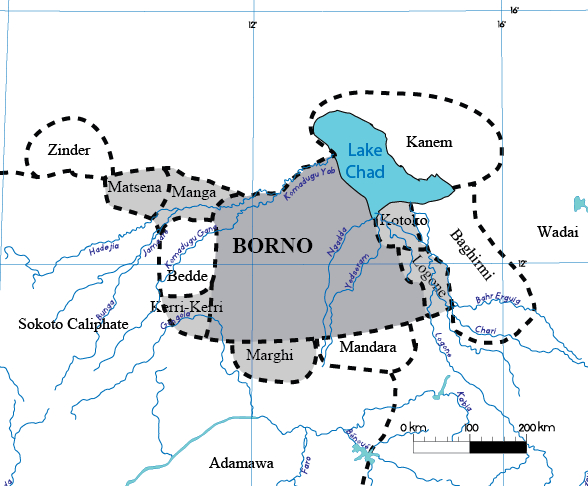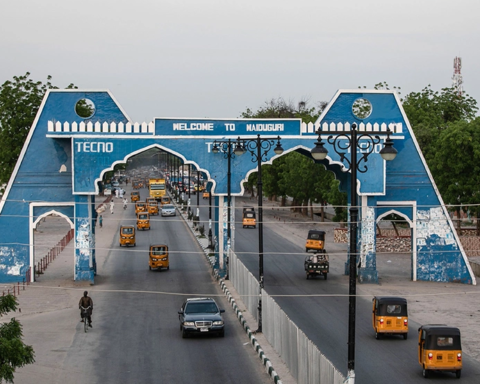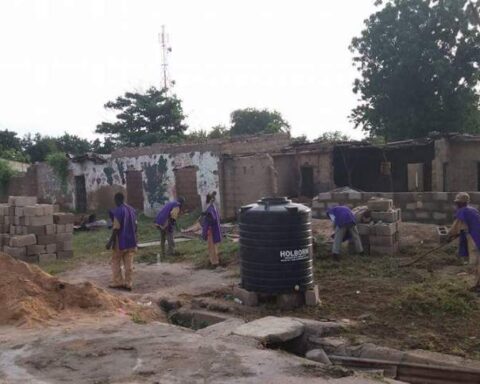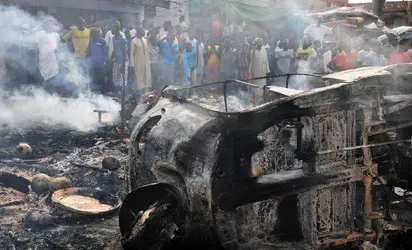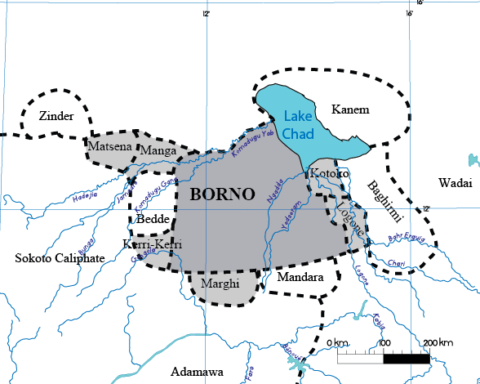IT is amazing to always behold the resilience of the human spirit. And in my Borno sojourn, the human spirit was asserting itself in a most defiant manner in the big and small events of each lived day. A curfew has been in place in Maiduguri for quite a while now. I was not staying inside the government residences, but in a hotel located not too far from the government quarters of the city. My assignment kept me away till very late in the night and it meant that to get to the hotel, I would have to be driven in a security convoy. The drive gave a measure of the seriousness of the situation that people live through in the city. Maiduguri at night is literally dead: no vehicular or human traffic; no nightlife. The few vehicles around are often directly related to the security situation and there are groups of young men who mann checkpoints in the cold of night. It feels very uncomfortable and eerie to be driven through a dead city at night. But this is what residents of the city have lived through in recent years.
When the day breaks, life resumes with vengeance! The streets are filled with all manners of vehicular transport: cars; buses; bhajajs; motor cycles. There is traffic jam along many stretches of roads in Maiduguri and that worried me a great deal, knowing just how many bombs had detonated in crowded areas in recent times. But people take their condition in their strides as they hit the streets in search of livelihood. The streets are festooned with the posters of candidates hopeful about the next elections and the political temperature is rising just like in other parts of the country. It seemed clear that the elections in Borno will have a peculiar edge to it given the configuration of the gladiators and against the backdrop of the insurgency; the accusations related thereto and the suffering that people have gone through in Borno state.
What is also noteworthy is how the semblance of normalcy is held on tightly in many scenes of everyday life. Wedding ceremonies are still held; mosques are filled for prayers and the intrepid Borno businessmen, especially those selling embroidered dresses and caps, still have an eye for a good bargain. There is a building mini boom related to the Legacy Houses that the state government is constructing, which allows a lot of artisans to be employed and new houses are also being constructed inside schools for teachers. The insurgency has sapped life and I was thinking about the effect it has had particularly on the young people on both sides of the insurgency: those who joined the insurgency and those who have chosen to resist it. The young people here have seen horrendous acts of violence and must be deeply scarred by their experiences. How would that impact on our societies into the future? What remedial steps can be taken to rehabilitate those who have lived through the violence of the Boko Haram insurgency and the counter-insurgency activities of the state? What levels of help will come to those who have seen their loved ones brutalized, shot or been slaughtered like rams?
The portents for the future will be scary for as long as we haven’t begun to think of the post-insurgency period of rehabilitation and reconstruction of communities as well as of individual lives. It used to be that Nigerians enjoyed our comfort zones so much and assumed certain things could not happen in our country. Not anymore! The Boko Haram insurgency and its various forms of violence have exposed the depth of depravity that humans in the Nigerian setting can go. But if we give ourselves the pause, we must also interrogate why we have created one of the most unjust societies on earth. There are those who list the billionaires in Nigeria today and think they are emblematic of success. But the obverse of their wealth, are the despair, angst and the underdevelopment which have bred the crises phenomena in the land. In Borno, our people have been living through the worst of times; our duty as a country is to turnaround the situation for the better. How we do that and with what speed, will say much about our collective humanity as well as the responsibility of the Nigerian state. So far, the state has not covered itself in glory, especially in Borno state.

